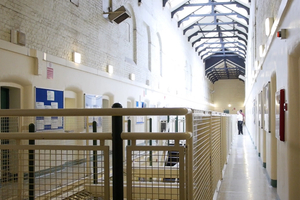Terrorist prisoners to face tougher limits behind bars
Terrorist prisoners to be banned from taking leading roles in religious services.

- tough new measures will be introduced to stop terrorists hiding extremist materials in cells
- move demonstrates decisive action following landmark terror review
Convicted terrorists will be banned from taking a leading role in religious services and face more rigorous checks for extremist literature as the government redoubles efforts to crackdown on dangerous radicalisers behind bars.
New rules will prevent terrorist prisoners leading the call to prayer or delivering sermons – positions they could exploit to gain authority or influence over other offenders and spread their poisonous ideology.
This will strengthen existing measures preventing the most dangerous prisoners leading Friday prayers by extending the ban to all faiths and not just those in high-security prisons – protecting frontline staff and the public.
The government also confirmed today (30 April 2023) limits on prisoners’ property that will prevent extremists circumventing prison rules to hide and spread extremist texts.
While under prison rules there are no limits on the number of books prisoners can own, the government will toughen these restrictions by stating that they must fit into two medium size boxes with a maximum weight of 15 kilograms.
This follows instances where prisoners have gathered hundreds of books in their cells – in one case an offender had more than 200 books – in an apparent attempt to thwart prison officers searching for extremist material.
This week also sees construction beginning on a new Close Supervision Centre at HMP Frankland – a separate wing to hold the most physically violent prisoners, including terrorists ,to further tackle extremist activity.
The moves build on a bolstered approach to managing terrorists in prison that began a year ago this week following an independent review Jonathan Hall KC.
Lord Chancellor and Justice Secretary, Alex Chalk said:
Faith can play a vital part in prisoners’ rehabilitation but we must never tolerate terrorists who seek to exploit religious services to advance their own sinister agenda.
These changes, alongside tougher sentences for terrorists who commit crimes behind bars and our work to separate more of the most radical terrorists, will better protect our hardworking staff, other prisoners and the public.
There are currently around 200 convicted terrorists in custody, many of whom attempt to justify their offences through their flawed interpretation of religion.
Today’s announcements are the latest in a string of decisive actions taken to prevent radicalisation and exploitation by terrorist offenders behind bars, following recommendations made by Jonathan Hall KC.
Since the report, the government has introduced a range of measures to tackle the threat of terrorist activity behind bars. This includes:
- Crime in Prisons agreement which ensures that terrorist offenders committing crime in prison are automatically referred to the police for prosecution so they face longer behind bars to keep the public safe.
- An investment of £1.2 million to establish a specialist Separation Centre and high-risk casework team, helping prevent offenders from spreading their malicious ideology to others.
- Changes to placement into Separation Centres so that offenders can be considered for placement in them sooner rather than being a ‘last resort’. Separation Centres are used to hold the most subversive extremist prisoners to prevent them from radicalising other prisoners.
- Ending the automatic early release of terrorists through the Terrorist Offenders Act 2020 and introducing a 14-year minimum jail term for the most dangerous terrorist offenders through the Counter Terrorism and Sentencing Act 2021.
- Introducing mandatory polygraph testing and making it easier for the police to search terrorist offenders or their property through the new Police, Crime, Sentencing and Courts Act 2022.
- A £6 million expansion of close supervision centres that house the most violent offenders, including the one now under construction at HMP Frankland.